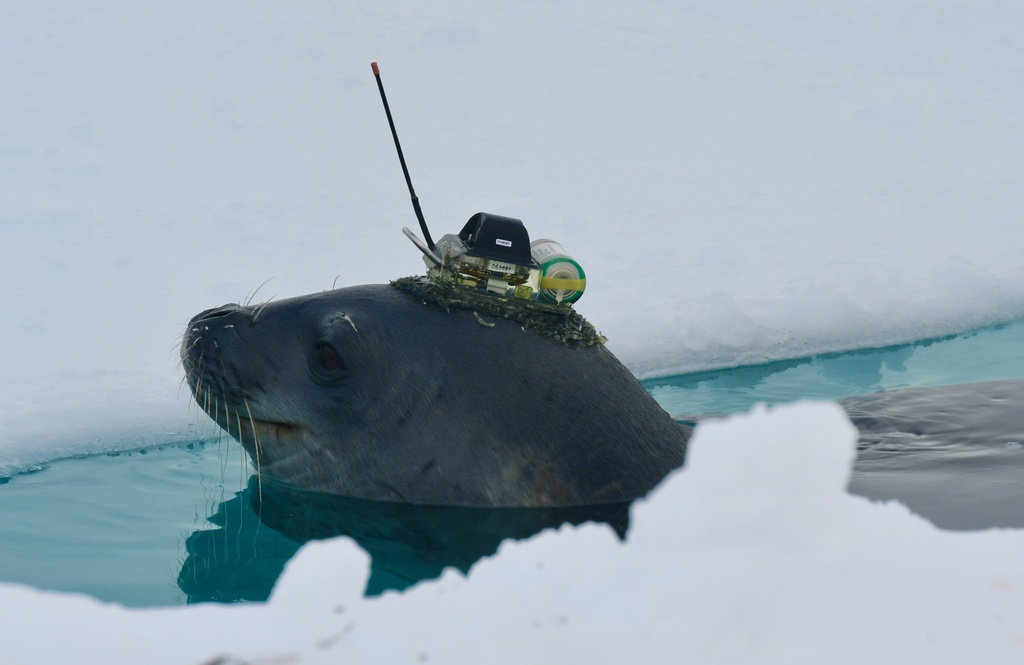The network has also been endorsed as a decade action as part of the UN Decade of Ocean Science for Sustainable Development.
A new paper published in Frontiers of Marine Science outlines the Animal-Borne Ocean Sensors (AniBOS) network which aims to collect and make freely available oceanographic measurements from the most inaccessible regions of the global seas to understand our changing oceans.
Dr Clive McMahon, from IMOS and the Sydney Institute of Marine Science, co-leads the AniBOS Steering Committee with Professor Fabien Roquet of the University of Gothenburg, and are drivers of coordinating the community and formalising the network.
“Equipping marine animals with biological and physical sensors is a long-established approach for studying animal behaviour, their ecology and the physical environment, and has been producing rich data streams for several decades,” says Dr McMahon.
“As a new Global Ocean Observing System (GOOS) network AniBOS aims to coordinate the collection and delivery of marine data into the broader ocean observing network.”
AniBOS provides a cost-effective capability to the Global Ocean Observing System (GOOS) to monitor essential ocean variables (EOV) and essential biodiversity variables (EBV) in data poor areas, by providing inputs to estimates of global ocean indicators and quantifying seasonal and interannual variability of the upper ocean state.
The hydrographic observations also provide a wealth of data on animal movements and behaviour that directly link environmental state and animal performance. This knowledge is essential to develop evidence-based policy to protect the animals and their habitats from increasing human activity.
AniBOS was formally recognized in 2020 as a GOOS network, and in October 2021 has been endorsed as a Decade Action as a project forming part of the UN Decade of Ocean Science for Sustainable Development 2021-2030. The project entitled “Animal-Borne Ocean Sensors: A decadal vision through new eyes” is hosted by the Ocean Decade programme Ocean Observing CoDesign – Evolving ocean observing for a sustainable future.
“This IMOS-led initiative will ensure data from animal tracking efforts will be used more broadly in ocean observing, and ultimately integrated into oceanographic models, making animal tracking data more relevant to global ocean observing efforts,” says Dr Michelle Heupel, IMOS Director.
